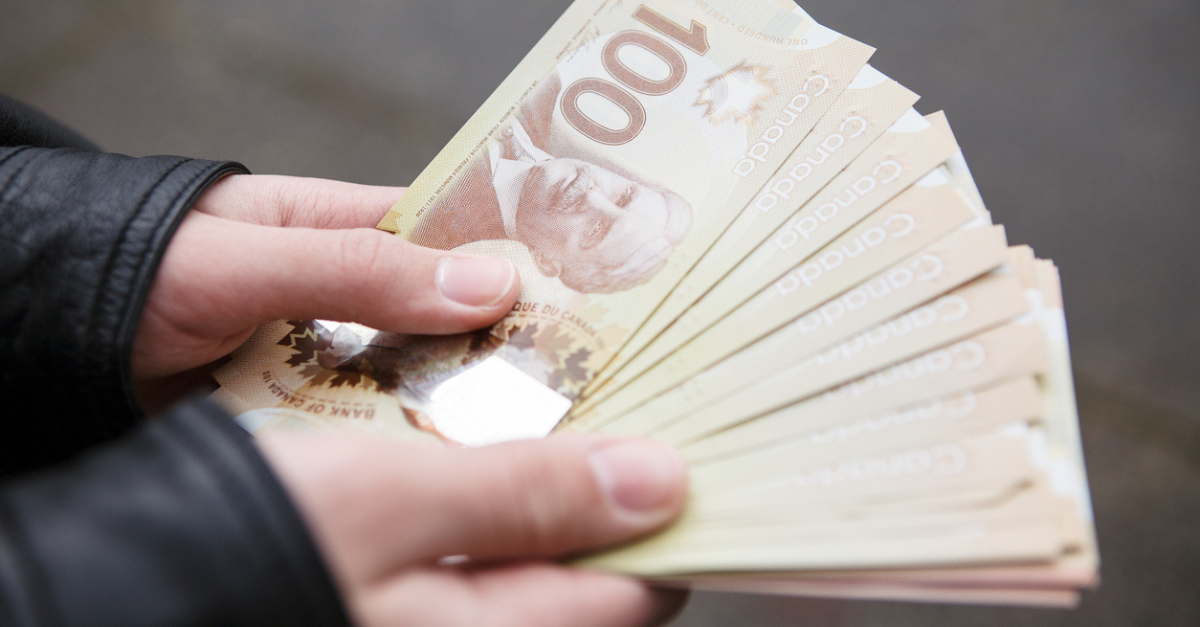
A consumer proposal is a formal arrangement under the Bankruptcy and Insolvency Act to settle debts for less than you owe. Your offer, or payment terms, are based on an assessment by your Licensed Insolvency Trustee of your financial situation at the time of filing, and your monthly payments will be designed to suit your budget at that time.
But what happens if your financial situation changes – for better or worse? In today’s post, I’ll discuss what happens if you receive an unexpected windfall during your proposal, if your income increases and what your options are if your income drops, perhaps due to a job loss or illness.
Table of Contents
Does an income change affect your consumer proposal payment?
Once your proposal is accepted, your repayment terms are fixed for the life of the proposal. That means that the monthly payment that is accepted will remain the same even if your income goes up after it is accepted. This is one of the big advantages of a consumer proposal over bankruptcy, where your payments will go up if your income increases while bankrupt.
But what happens if your income falls or your expenses change, and this adverse change in your circumstances makes it difficult to keep up with your proposal payments?
If your income goes down such that you are unable to continue the proposal as filed, speak with your trustee about a possible amendment to the proposal. Your trustee will discuss with you the changes in your situation and help determine what your best next step is.
What happens if you default on a consumer proposal?
A consumer proposal is deemed annulled if you fall behind on a total of three monthly payments. If your consumer proposal is structured so that the payments are not required monthly, then a deemed annulment happens if it has been three months since the payment was due.
If your consumer proposal is annulled, your unsecured debts return. The stay of proceedings you benefited from ceases and creditors can pursue full payment of the debt still owing including interest that has accrued since the date of filing. Collection calls will return and you may be subject to a future wage garnishment so this is not something you typically want to happen.
What are your options if you have a material adverse drop in income?
It is possible to revive an annulled proposal if action is taken soon enough (within 30 days of default), but it is much better to be proactive if your income drops and you suspect you will not be able to complete your proposal as originally filed.
If you have a material adverse drop in income, speak with your Licensed Insolvency Trustee before you begin missing payments.
You may be able to amend the proposal for a reduced monthly payment, or if your proposal is almost complete, you may be able to file an amended consumer proposal for the amount already paid to date.
It is up to the creditors to accept the amendment although most are willing to negotiate based on your new financial situation.
If the creditors do not accept the amended consumer proposal, it will not revert back to the original terms; your proposal will have failed, and your debts will become due in full again.
When you are amending your consumer proposal, your LIT will have to review a bankruptcy versus proposal analysis at that time. If your income has increased or you have more assets, this will affect the amendment process.
If you are unable to amend the proposal your options will be to file bankruptcy (and continue to receive debt relief) or let the proposal become annulled (and the debts will return).
What happens if you receive a windfall?
In a consumer proposal in Canada, your assets vest with you, meaning you keep your assets and are free to use them how you see fit. Any new assets you obtain once your proposal is approved are also yours to keep. Your consumer proposal is considered deemed court-approved 15 days after it has been accepted by the creditors.
Even if you win the lottery, receive an inheritance, earn a bonus or raise at work, there is no change to your proposal terms as long as that happens after your proposal is approved. The same holds for any increase in the value of any of your assets, such as your home equity or increase in earnings post-filing. Your unsecured creditors are not entitled to any of this new money once your proposal is accepted by the court.
What happens if I get into debt again?
Re-establishing your credit is something most people want to do after filing a proposal.
Acquiring and using a credit card, even a secured credit card, can help you re-establish your credit rating. The key is to pay these balances in full each month, avoiding further late payment notices on your credit report and avoiding interest costs. Once your credit score improves a little, you may qualify for other credit like a car loan.
We strongly recommend avoiding the temptation to apply for high-interest payday loans or lines of credit from alternative lenders. While credit cards typically charge 21% to 29%, online and quick cash lenders charge rates of 39% and up to 59%. New high-interest loans are tough to repay and could jeopardize your current proposal payments.
It is very important to understand that you are not able to add new debts to your proposal if you incurred the debts after your proposal was filed.
Taking on significant new debt while in a proposal can make it difficult to keep up with your required proposal payments. As mentioned, if you miss three payments, your proposal will be annulled. If you filed a proposal to protect your assets, taking on new debts also puts these assets at risk.
You cannot add debts incurred after the date of your proposal filing to your existing consumer proposal. You also cannot file a new consumer proposal on new debts while in an active proposal. If you are unable to pay your monthly bills and consumer proposal payment due to new debts, your option at that point will likely be to file for bankruptcy. A bankruptcy would deal with all of the proposal debts and the new debts.
Talk to your Licensed Insolvency Trustee
If you are in a proposal and struggling because your finances have changed for the worst, talk with your Licensed Insolvency Trustee about your options. Filing a proposal is meant to be a fresh start, but we recognize financial problems can arise during a proposal. Talk to your proposal administrator as soon as you start seeing signs of difficulties.
If you are considering a consumer proposal and believe your income may increase or are worried about a future inheritance, a consumer proposal may be a good option. Book a free consultation with a LIT to discuss potential debt solutions that can help you become debt free.





